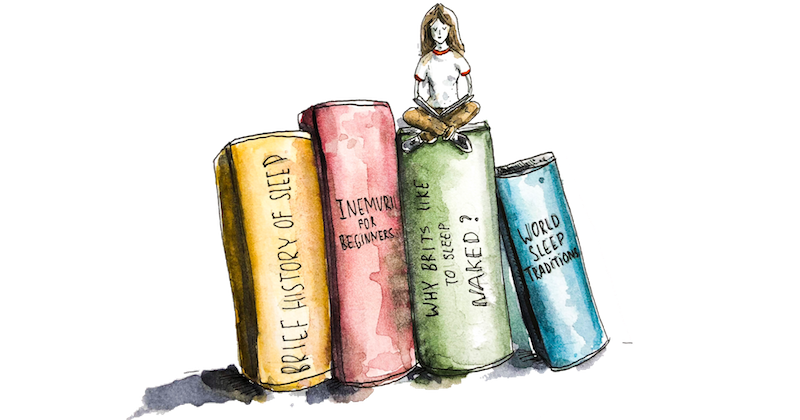A History of Sleep across the World
Being woken in the middle of the night can be stressful and tiring, so it’s probably hard to believe that historically this was the norm.
In the 15th century, Europeans conformed to what is known as a bi-phase sleep. This occurred across the globe in African and South American tribes as well. The night would be split into two sleep periods. During the waking period, people would relax, contemplate their dreams or just spend time as a family. Some would even engage in physical activities like cooking, chopping wood, or reading.
Today’s society doesn’t allow for this type of flexibility. We have to conform to very different schedules. It is now proven that an unbroken 7-9 hours of sleep for an adult is best for mental well-being and health. In support of this, naps can have important health benefits also. Helping memory and learning, increasing our alertness and improving mood states. This counts for children and adults.
Some interesting sleep traditions across the globe:
Siesta time. The tradition of napping dates back thousands of years. The name comes from the Latin hora sexta, which means “the sixth hour.” It originated to give farmers time to rest and restore energy in hot temperatures. This tradition continues to this day in Spain and other European countries as well. Using the middle of the day to eat lunch and take a nap to recharge batteries.
The Brits like to sleep in the nude! The National Sleep Foundation found that nearly one third of the UK said they sleep most nights with no clothing on, a much higher percentage than any other country reviewed. Blimey – who would have thought!
Sleeping with your favourite pets: According to the National Sleep Foundation, 71% of Americans with pets let them sleep in bed with them. This bedtime ritual may cause some unwanted hairs between the sheets, however studies have found that snuggling up to your pets provides warmth and contentment. Making you feel relaxed and ready for sleep.
Sleeping in the garden: In Scandinavia parents often leave their babies outdoors for naps. This happens even in the wintertime. It’s common to see babies parked in strollers outside a shop while parents are inside shopping. They believe the fresh air is good for their kids and will help prevent illness.
Bedtime meditation: In Mexico, meditation is common practice before going to sleep. Unlike watching TV or reading work emails before bed, which can actually make it more difficult to get to sleep, the quietness of meditation can help reduce stress and induce sleep.
Late bedtimes for kids: Most parents tend to put their kids to bed early in the evening. In South America however, kids are more likely to stay up late. Dinner doesn’t typically happen until around 21:00, so children often stay up until sometimes 23:00. These children often sleep in later in the morning, so they are getting enough sleep. Their daily schedule is just set later than ours.
Sleeping on the job in Japan: The practice of inemuri, or napping whilst present, is a daily event in Japan. Napping is sometimes done on a park bench or a train, or even during a meeting at work. In a culture that values attentiveness, napping in public is taken as a sign that a person is tired from working hard but still wants to continue to participate in the day.
No worry, worry dolls: Guatemala’s indigenous people craft worry dolls to help them sleep. According to folklore you tell your worries to the doll and then put the dolls under their pillow. The dolls take over worrying so the person can sleep soundly and wake up unburdened and relieved in the morning.
Every culture has its own sleep traditions old and new. The one thing we all have in common is our need for sleep, to maintain health and wellbeing for ourselves and our families. Sleep is as important as a good diet and exercise. It is a basic human need. If you are suffering from sleep problems or struggling to get your child to sleep through the night, then remember to ask for help.
By Kate Fergusson
As a certified paediatric sleep consultant and mother, Kate knows only too well that not getting enough sleep affects our state of mind, feelings, relationships and health. She feels strongly that healthy sleep habits make for children who are curious, energetic, happy, playful, and eager to learn. Follow Kate for up-to-date advice and support with your child’s sleep. To find out more about Kate: www.simplesleep.co.uk www.facebook.com/simplesleep.co.uk/ www.instagram.com/simplesleep.co.uk/
Illustration by Aleksandra Koroleva
Aleksandra, originally from Moscow, Russia, now lives in Adliswil with her husband and 3.5-year-old son. She specializes in clinical psychology and started studying illustration after her son’s birth. In her free time Aleksandra likes sleeping, as all mothers do. https://www.instagram.com/uber_evil




